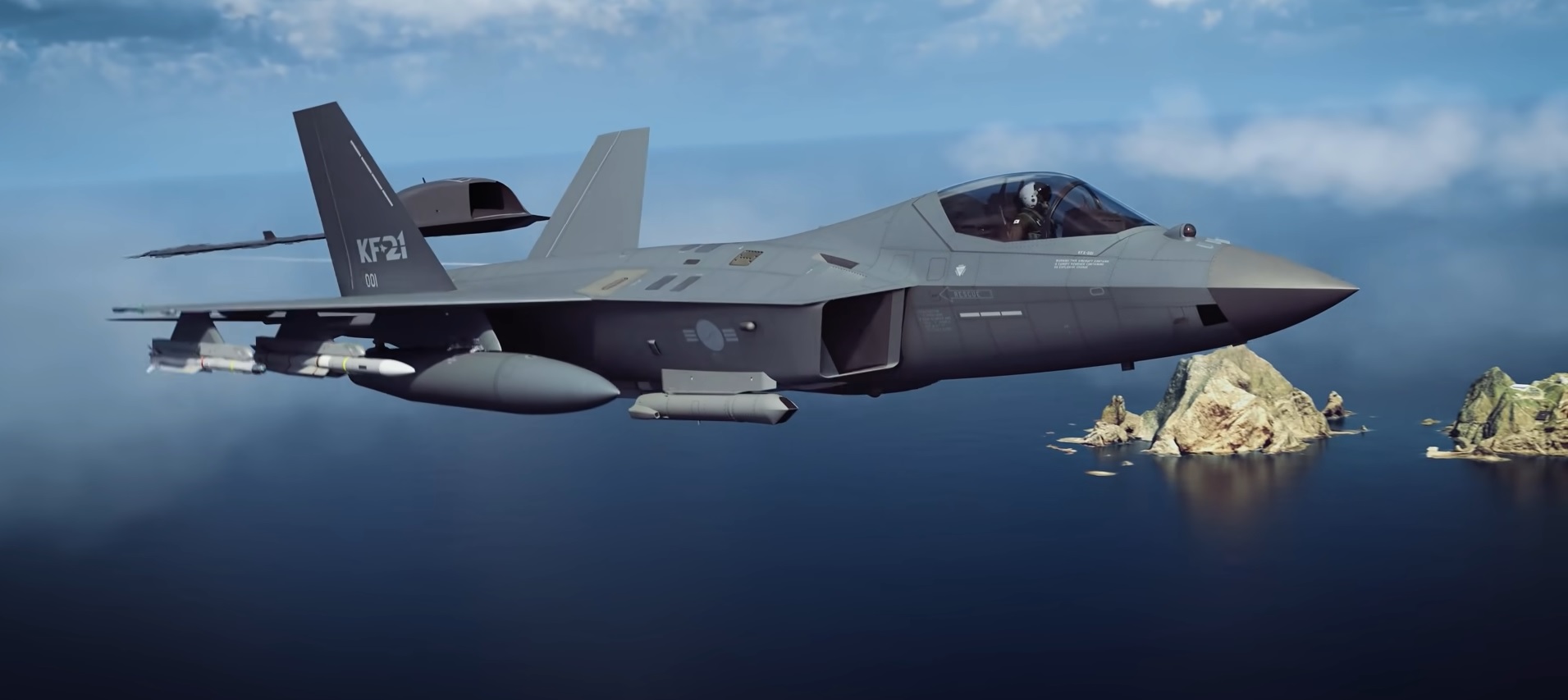South Korea has reportedly agreed to reduce Indonesia’s financial stake in the joint KF-21 fighter jet development project in response to repeated delays in payments from the Southeast Asian nation.
The Defense Acquisition Program Administration (DAPA) announced on August 16 that Indonesia’s contribution has been slashed from 1.6 trillion won (approximately $1.2 billion) to 600 billion won (around $440 million), reported Yonhap.
The KF-21 project, initiated in 2015, aims to develop a cutting-edge supersonic fighter jet. Indonesia initially pledged to cover 20 percent of the program’s estimated cost of 8.1 trillion won.
However, due to financial difficulties exacerbated by the COVID-19 pandemic and its aftermath, Indonesia has only managed to contribute approximately 400 billion won to date.
The country then sought a substantial reduction in its financial obligation, citing economic strains and challenges in meeting its payment schedule. In May, South Korea began reviewing Indonesia’s proposal to lower its payment obligations and has now officially agreed to the revised terms.
DAPA said that its decision to accommodate Indonesia’s request was influenced by multiple factors, including the importance of maintaining strong bilateral relations and the practicalities of covering the resultant financial shortfall.
The agency stated, “We considered the bilateral relations between the two countries and other factors such as whether we would be able to fill the financial hole. After finalizing the new cost-sharing deal with Indonesia, we will focus on meeting public expectations by completing the project successfully.”
In conjunction with the reduction in financial contribution, the benefits associated with technology transfer to Indonesia will also be scaled back proportionally.
While DAPA has not yet detailed the specifics of how the technology transfer will be adjusted, the overall impact on Indonesia’s involvement in the project will be notable.
The revised financial arrangement means that the Korean stakeholders, which include the South Korean government and Korea Aerospace Industries (KAI), will need to absorb a greater share of the project’s cost.
Initially, the Korean government and KAI were responsible for 60 percent and 20 percent of the total project cost, respectively. With the adjusted figures, the Korean partners will face an increased financial burden of approximately 500 billion won to ensure the project’s completion by its scheduled deadline in 2026.
However, Korean officials have identified ways to reduce the total project cost to 7.6 trillion won, which will help mitigate the financial impact on the Korean participants.
Controversy Surrounds Indonesia’s Involvement
The KF-21 fighter jet program has long faced considerable negative attention due to Indonesia’s persistent payment delays, with speculation even swirling about the possibility of another country stepping in to cover its financial obligations.
New development suggests that South Korea’s decision to reduce Indonesia’s financial contribution could alleviate some of these issues.
By agreeing to lower Indonesia’s financial commitment, South Korea aims to address the payment delays that have marred the project. This adjustment is expected to prevent further complications related to funding.
However, the reduction in Indonesia’s funding will have a direct impact on the technology transfer and developmental opportunities available to Indonesian aerospace engineers.
Initially, the KF-21 project was envisioned to provide Indonesia with valuable insights into fighter jet development, a critical component for enhancing the capabilities of the state aerospace company PT Dirgantara Indonesia (PT DI).

Since 2011, PT DI has been an industrial partner in the KF-21 program, focusing on developing its expertise in aerospace technology.
However, the scaled-back financial contribution will reduce the level of technology transfer from South Korea, limiting PT DI’s access to advanced fighter development knowledge.
Additionally, the chance for Indonesian engineers to gain hands-on experience in fighter manufacturing—a skill set distinct from development—will likely be diminished.
Currently, PT DI does not produce fighter jets or their components but instead focuses on helicopters and propeller-driven aircraft. As a result, Indonesia’s role in the KF-21 program risks becoming “little more than that of a customer.”
Moreover, the decision to alleviate Indonesia’s financial burden also follows recent scrutiny of the partnership, including an investigation into allegations that Indonesian engineers might have stolen sensitive KF-21 data while working in South Korea.
Although the outcome of this investigation remains uncertain, it has cast a shadow over Indonesia’s continued participation in the program.
Compounding the uncertainty, Indonesia’s procurement of 48 Dassault Rafales and a memorandum of understanding for 24 Boeing F-15EXs have raised questions about its commitment to the KF-21 project.
Despite these challenges, the KF-21 program is progressing. The first units are scheduled to be delivered to the South Korean Air Force in late 2026.
In July, Korea Aerospace Industries (KAI) officially commenced production at its facility in Sacheon, South Gyeongsang Province, and has signed a 1.96 trillion-won agreement with DAPA to produce 20 KF-21 jets by 2027.
Further, South Korea plans to build 120 KF-21s by 2032 to bolster its military capabilities and enhance its position in the arms export market.
- Contact the author at ashishmichel(at)gmail.com
- Follow EurAsian Times on Google News




